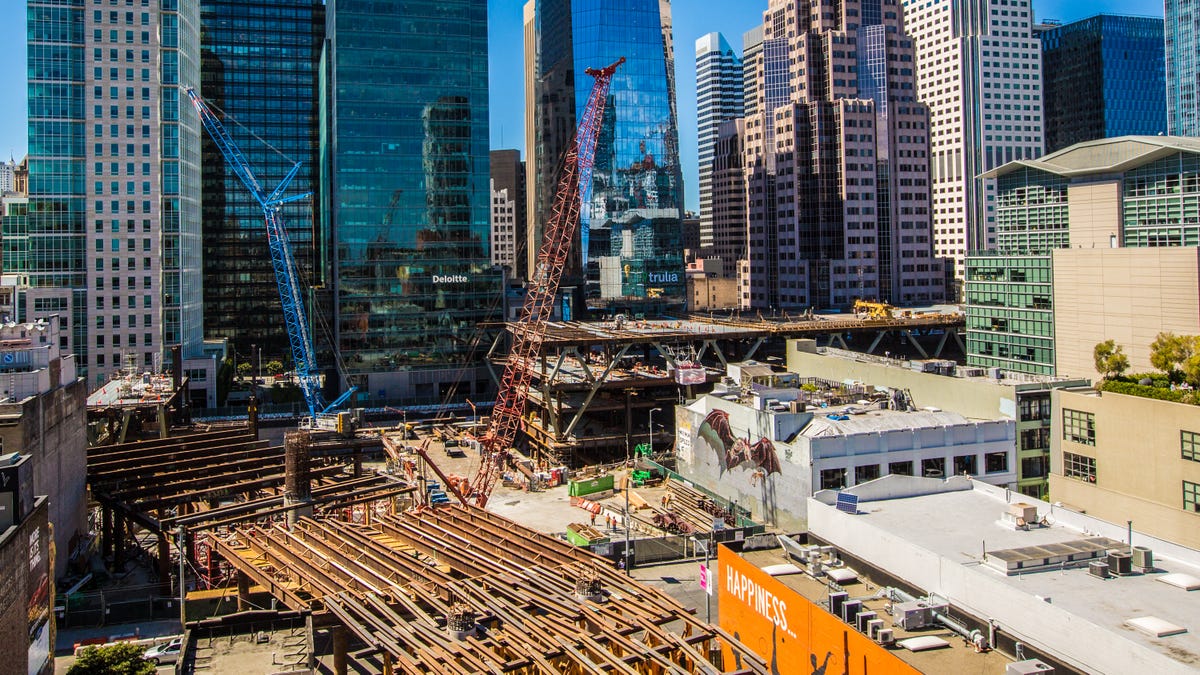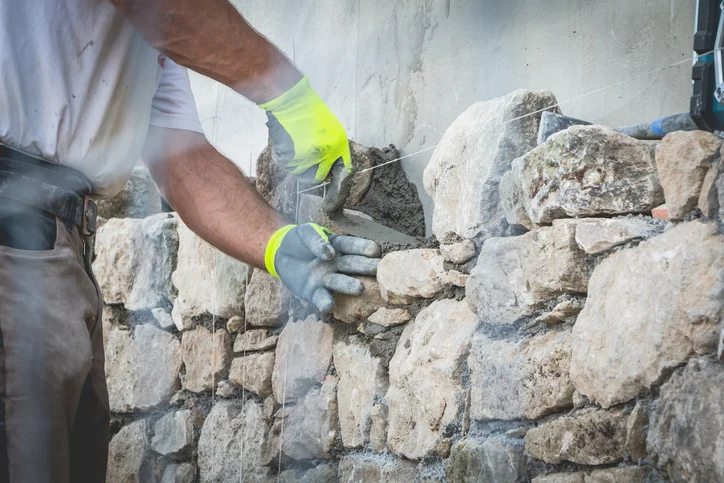
@username ♬ original sound
Masonry careers in California offer stable opportunities for skilled tradespeople, with median annual wages exceeding $56,000 and consistent demand for restoration, construction, and specialty projects. In San Francisco specifically, demand persists for historical restoration, seismic retrofits, and green building initiatives. While the U.S. Bureau of Labor Statistics projects 0% growth for masonry jobs nationwide through 2033, about 21,800 annual openings will stem from retirements and worker attrition. Like in Los Angeles, California requires masons aiming for independent contracting to obtain a C-29 license through the Contractors State License Board (CSLB).

Before diving into the steps for becoming a licensed mason, it's essential to understand what the profession entails. Masons are skilled tradespeople who construct, repair, and maintain structures made of brick, concrete block, and stone. Their work ranges from residential wall installations to seismic retrofitting of historic buildings. In San Francisco, masons are particularly valued for their expertise in earthquake-resistant construction, energy-efficient masonry systems, and preservation of historic landmarks.
Yes! In California, any masonry professional taking on projects exceeding $500 in combined labor and material costs must hold a C-29 Masonry Contractor License from the CSLB. This licensing framework ensures compliance with building codes and protects consumers from unqualified workmanship. For those just starting out, a license isn't required for entry-level positions, but obtaining your C-29 license eventually will unlock opportunities for independent contracting and higher wages.

🔗 To learn more about the full C-29 license classification, visit the CSLB official website.
Prospective masons typically begin their careers as apprentices, gaining hands-on training under licensed contractors. In California, apprenticeships must meet the standards of the Division of Apprenticeship Standards (DAS), which mandates 4,200 hours (approximately 2.5 years) of supervised training. However, to qualify for the CSLB C-29 license, aspiring contractors must have 4 full years of experience in the past decade. Many apprentices combine their on-the-job training with night classes in blueprint reading, OSHA safety protocols, and green building principles to be better prepared.
Aspiring masons should also consider earning certifications like OSHA 30 Safety Certification and ICC (International Code Council) Basic Code Compliance Certifications, which are highly valued in the field.
| Apprenticeship Period | Duration | Activities |
|---|---|---|
| Phase 1 | 12–18 months | Introductory bricklaying, basic math, tool use |
| Phase 2 | 12–18 months | Intermediate techniques, blueprint reading, safety training |
| Phase 3 | 12–18 months | Advanced wall systems, seismic retrofitting, code compliance |
| Phase 4 | 6–12 months | Specialized training in historical restoration or green masonry |
Please keep in mind that while the minimum apprenticeship period is 2.5 years, many apprentices extend their training to build specific expertise in demanded areas like monumental preservation, modular masonry, or autonomous tool operation.

🔗 If you're ready to explore apprenticeship opportunities, start your search here today.
Follow these steps to begin your journey and eventually establish a successful career in masonry.
To become a mason in San Francisco, you’ll need to satisfy several prerequisites:
Begin under the supervision of a licensed contractor, actively earning hours while building your craft and laying the foundation toward your C-29 license. This step typically lasts 2.5–4 years, depending on whether you follow a formal apprenticeship program or a combination of on-the-job experience and informal training.
During your apprenticeship, you’ll learn essential masonry skills such as:
Continuing on from your apprenticeship, work as a journeyman mason under licensed contractors. This stage will typically last the remaining time required to reach 4,000 hours of documented experience, unless you already met that requirement through apprenticeship. Focus on earning experience in high-demand applications specific to San Francisco, such as hydrostatic wall construction and historic brick restoration. Gain progressive responsibility and evaluate when you're ready to sit for the C-29 exam.
Once eligible, study for and pass two exams:
Various prep resources such as @HomePrep ($240) or the ContractorsI School ($495) offer comprehensive training to increase your chances of passing on the first try.
After studying, book your exams through CSLB-authorized test centers. Both tests are modular and multiple-choice, though they require advance scheduling.
🔗 Learn more about the licensing pathway on the official ContractorsI School site here.
Upon passing exams, submit your $200 license application fee, experience verification, and a $25,000 surety bond for compliance with CSLB requirements. Most licenses are processed within 4–6 weeks, although complete documentation helps expedite the process. Those carrying employees must also obtain workers' compensation insurance, though independent contractors can opt for general liability coverage.
Once licensed, explore advanced applications like design-build contracting, sustainable masonry in LEED-certified facilities, and incorporating robotic bricklaying tools into your business. You can grow your career further by becoming an estimator, project manager, or even launching your own masonry company.
Masons in California can expect salaries ranging from $53,790 to $64,590 annually, with an average of $58,890. In high-demand markets like San Francisco, the typical hourly wage is about $31.64, outpacing the average for the state overall ($26.51) due to the specializations required in seismic retrofitting and historical projects.
Masonry professionals with niche skills like 3D masonry modeling, structural diagnostics, or autonomous tool familiarity can earn premium wages, especially through independent contracting or employment with reputable firms like DiBara Masonry or Geurin Mobile Home Service.
Additionally, technological advancements like AI-assisted robotic bricklayers and drone site surveys are reshaping how masons work, creating demand for masons with hybrid skill sets. While automation is changing the trade, hands-on masons remain essential for supervising, troubleshooting, and handling historic, complex, or aesthetic masonry work in San Francisco.
Starting a career as a mason in San Francisco is an exciting opportunity to combine craft with necessity. Whether you're just finishing high school, making a career switch, or aiming for independent contracting, this guide maps out a clear path toward becoming a C-29 licensed mason. Like plumbing in NYC, masonry in SF is a respected, well-paid trade, but it requires structured training and commitment.
If you're ready to get started, the quickest way to find apprenticeship opportunities, formal training, or contractor mentorship is through Gild, where thousands of masonry positions are listed and easily accessible. Good luck on your journey, and keep building—professionally and literally!

